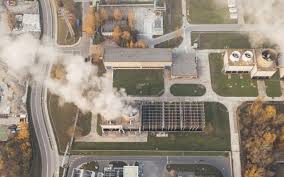Earth’s atmospheric carbon dioxide (CO₂) concentrations have reached unprecedented levels, raising alarms among scientists and public health experts about the growing threats to human health. This surge in greenhouse gases is not only driving climate change but also directly impacting air quality and health outcomes worldwide.
Impact of Rising CO₂ Levels on Human Health
Elevated CO₂ levels contribute to global warming, which exacerbates extreme weather events, air pollution, and the spread of infectious diseases. These environmental changes have several health consequences, including:
- Increased respiratory problems such as asthma and chronic bronchitis
- Greater incidence of heat-related illnesses and heat strokes
- Worsening cardiovascular conditions due to poor air quality
- Expanded range of vector-borne diseases like malaria and dengue
Global CO₂ Emissions and Climate Change
The continuous rise in CO₂ emissions from burning fossil fuels, deforestation, and industrial activities is the primary driver of climate change. Addressing these emissions is critical to reducing global temperatures and mitigating health risks.
Urgent Need for Climate Action
Experts emphasize the importance of implementing strong climate policies and adopting clean energy solutions. Reducing CO₂ emissions can improve air quality, protect ecosystems, and ultimately safeguard human health.
Protecting Public Health in a Changing Climate
Governments, health organizations, and communities must collaborate to develop adaptive strategies, such as enhancing healthcare infrastructure, promoting sustainable urban planning, and raising public awareness about climate-related health risks.
Conclusion
The record high CO₂ levels are a stark reminder of the urgent need to combat climate change. Protecting human health requires immediate action to reduce emissions and build resilience against the health impacts of a warming planet.



Comments (0)
No comments yet. Be the first to comment!
Leave a Comment